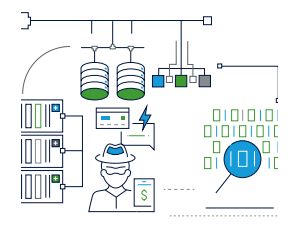Introduction to Cybersecurity
India’s digital transformation has been marked by significant initiatives such as Digital India, Smart Cities Mission, and widespread adoption of digital payment systems. As the country embraces these technological advancements, the importance of robust cybersecurity measures becomes paramount. Cybersecurity threats pose risks to national security, economic stability, and individual privacy.
Cybersecurity Overview
In an era where digital transformation drives every facet of modern society, cybersecurity emerges as a critical pillar safeguarding our interconnected ecosystem. It transcends mere technical measures, evolving into a multidimensional discipline that encompasses a blend of technology, policy, and human behavior. The relentless advancement of cyber threats—from sophisticated state-sponsored attacks to pervasive ransomware—necessitates a proactive and adaptive approach to security. Cybersecurity not only defends against breaches and data theft but also fortifies trust in the digital infrastructure that underpins global commerce, communication, and governance. This dynamic field demands continuous innovation and collaboration to anticipate and counteract the evolving tactics of cyber adversaries, ensuring a resilient and secure digital future.

Definition
Cybersecurity is the comprehensive practice of protecting systems, networks, and data from digital attacks, unauthorized access, and damage, through the implementation of advanced technologies, rigorous processes, and trained personnel, ensuring the integrity, confidentiality, and availability of information in an increasingly interconnected world.
Need for Cybersecurity
The rapid digitization of India has catalyzed unprecedented economic growth and improved access to services. However, it has also expanded the country’s vulnerability to cyber threats. This paper examines the current cybersecurity landscape in India, identifies the major challenges, and proposes strategic imperatives to strengthen cybersecurity infrastructure.
POPULAR SEARCHES
New Tax Regime Slabs | DPDPA Compliance Checklist | Cyber security policy Frameworks | Roles of Cybersecurity Regulatory Bodies | Rationalizing TCS on LRS | Union Budget 2025 | Double Taxation of Dividends | Union Budget 2025 PDF | Old and New Tax Regime | Company Law and Legal Advisory Services | Business Consulting Services | Corporate Advisory And Structuring Services | Financial Process Outsourcing Services | Goods and Services Tax advisory | IT Systems Assurance Services | Ind AS advisory | Internal Audit Services | Tax Services – Domestic and International | Banking, Financial Services and Insurance (BFSI) Internal Audit Services | Tax Service for Gems and Jewellery Industry | Internal Audit Services For ITeS Industry | Internal Audit Services for Manufacturing Industry | Internal Audit Service for Entertainment Industry | Internal Audit Service in Real Estate Industry
